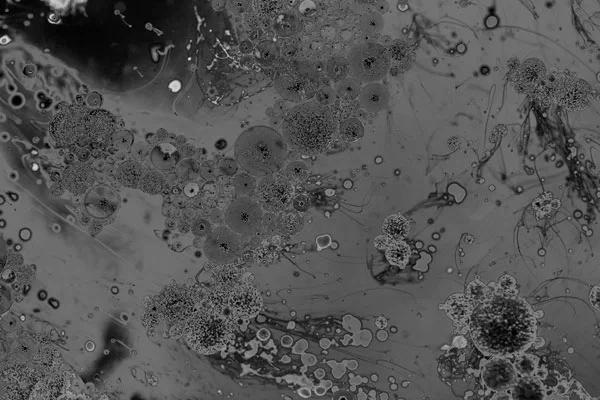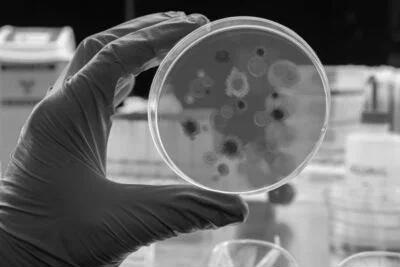Humans are never alone: we are accompanied by a vibrant community of microorganisms, with the number of microbial cells in our bodies being almost equal to that of human cells, maintaining a close to one-to-one ratio.

Image Credit: H.E.L Group
The total number of cells contained in the human body is astronomical, in the region of tens of trillion; in the order of tens of trillions – that is 1013, or a one followed by 13 zeros.
However, microbial cells are small in size; thus, their collective mass only amounts to a mere 500 g of our total body weight. Yet, their impact on our health and well-being cannot be understated.
The microbes found in the gastrointestinal tract (gut microbiome – GM) are considered to be so important that it is often referred to as the“second metabolic organ.” The microbial companions residing in the gut impact various bodily processes ranging from nutrient absorption to defense against pathogens. They also play a role in conditions such as irritable bowel syndrome (IBS) and some neurological disorders.
The science of the microbiome
In 2007, the National Institutes of Health (NIH) initiated the Human Microbiome Project (HMP), with the intention of advancing knowledge surrounding the microbiome and promoting research characterizing the bacterial, archaeal, and fungal communities active in the human body and the role they play in health and disease.
Another initiative that aims to push the envelope in GM science is INFOGEST. Established in 2014, INFOGEST is an international research network comprised of over 400 scientists from 150 institutions in 45 countries that aim to coordinate various methodologies used for GM research.

Image Credit: H.E.L Group
The variety of bodily functions that the GM affects underlines its importance. Since the early 2000s, there has been an ongoing effort to progress in the field of microbiome research, focusing on identifying the variety and roles of the microorganisms (including bacteria, fungi, protozoa, and archaea) that comprise it.
During this period, the technologies employed to identify the members of the microbial community have advanced significantly. Initially, characterizing these microorganisms was a laborious task that required growing them in liquid media and on Petri dishes, which necessitated extended incubation times and resulted in limited throughput.
With the emergence of next-generation sequencing, such approaches have since evolved.
By employing genetic markers, the various constituents of the gut microbiome can be identified without necessitating cultivation under laboratory conditions. This approach is especially pertinent considering that only a minor portion of bacterial and archaeal species are amenable to cultivation.
More recently, the focus has shifted from merely identifying microbial species to understanding their functional capabilities. This shift has been facilitated by advancements in technology, such as shotgun metagenomics, which seeks to reconstruct entire genomes by piecing together short DNA sequences that have been sequenced.
The GM: A dynamic ecosystem within us
The biological populations within any ecosystem are highly sensitive to changes in physical and chemical conditions, and the gut microbiome is no different. Influences like diet play a crucial role in determining the composition of the community within the gastrointestinal tract.
The influence of such factors is so pronounced that microbial signatures shaped by geographical locations and personal dietary practices can be easily distinguished. Additionally, there are significant variations across the various sections of the digestive system. For instance, the small intestine is marked by rapid transit and the presence of oxygen.
Consequently, the ecology of this part of the gastrointestinal tract is largely made up of facultative aerobic organisms with strong growth rates. Conversely, in the colon, slower transit times and mostly anaerobic conditions give it a high biodiversity rate in which oxygen-independent organisms are dominant.
In these conditions, rather than aerobic respiration, the GM members of this community are dependent on alternative pathways, like the use of sulfate (generating hydrogen sulfide) or fermentation (producing organic acids such as acetate or gases, including methane).

Image Credit: H.E.L Group
Complex relationships are formed between the various groups inhabiting the human digestive tract. For example, in this ecosystem, it is well-documented that a healthy gut microbiome fends off a range of pathogens due to out-competition strategies (e.g., antibiotic production), and the benefits do not end there.
The metabolic capabilities of microorganisms are extremely varied, and they can produce substances that human beings can take advantage of.
For example, the microbial communities residing in the human digestive system produce butyrate (another organic acid), which is known for its anti-inflammatory and anti-cancer activities, as well as important vitamins, such as B12, folate, riboflavin, biotin, and vitamin K.
On the other hand, under restrictive conditions, the GM can also resort to being pernicious for its host. Deficiencies in key nutrients can alter the balance in the community, and organisms that can digest some human cells, such as mucins that help form the colonic mucus barrier, can increase, which can cause inflammatory issues.
The path forward in research
The relationship that we share with our microbial companions is multifaceted and presents both challenges and opportunities. The delicate balance among diet, the gut microbiome, and our health emphasizes the gut microbiome's essential influence on our general well-being.
This has led private and public sectors to join forces in trying to disentangle the mysteries of this “second metabolic organ.” The results of this research have ended up in different services and products, such as personalized microbiome management, microbiome-based therapeutics, and understanding disease mechanisms.
As humanity continues to explore the known universe, it is crucial to note the importance of unraveling the inner secrets of the microbiota inhabiting all regions of the gastrointestinal tract, as it could have incredible benefits for humankind.
Exploring the human microbiome will allow us to redefine the relationship between humans and microbes, recognizing the gut microbiome not as a foreign entity but as an integral part of our biological makeup.
Projects such as the HMP and INFOGEST reflect the importance of human-microbial collaboration. These programs emphasize the significance of unearthing the secrets of the GM and their critical role in paving a future where health is viewed through a wider, more comprehensive lens that accounts for both human and non-human members of the partnership involved in our well-being.
In conclusion, the gut microbiome is indicative of the complexity and entanglements of life. As research progresses, it could come to light that the solution to treating certain ailments lies not in human cells alone but within the interconnectedness between those and the trillions of microorganisms that call us home.
Embracing this perspective opens up a world of possibilities for progressing ways of addressing human health in symbiosis with the microscopic life that flourishes within us.
References
https://www.frontiersin.org/articles/10.3389/fcomm.2023.974973/full
https://www.ncbi.nlm.nih.gov/pmc/articles/PMC10230107/
www.gutmicrobiotaforhealth.com/popular-misconceptions-of-the-microbiome-busted/
About H.E.L Group
H.E.L develops and manufactures innovative scientific instruments and software designed to optimize the efficiency, safety and productivity of key processes in chemistry and biology applications.
The H.E.L team of 70 includes highly skilled process and software engineers, based at their extensive research and manufacturing facilities in the UK, as well as sales and support offices around the world.
H.E.L has a long history of solving complex challenges for customers. Since 1987, the Company has worked with businesses and laboratories globally, providing proprietary automated solutions for the pharma, biotechnology, chemical, battery and petrochemical sectors.
We continue to extend the reach of our products and service to support and enable R&D and process optimization further across Europe, the US, China and India.
H.E.L is accredited with ISO 9001 : 2015.
Sponsored Content Policy: News-Medical.net publishes articles and related content that may be derived from sources where we have existing commercial relationships, provided such content adds value to the core editorial ethos of News-Medical.Net which is to educate and inform site visitors interested in medical research, science, medical devices and treatments.